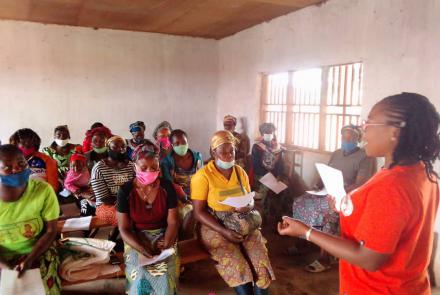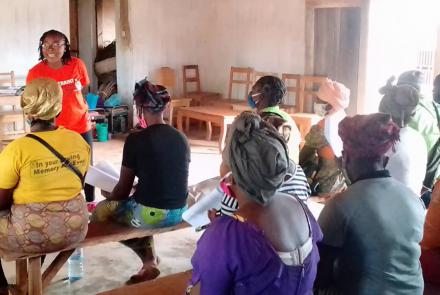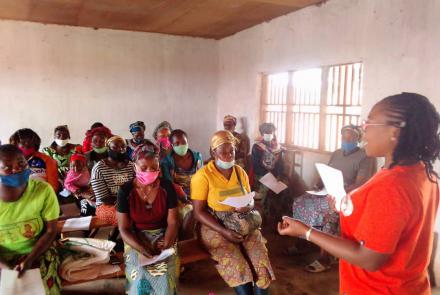Nutrition and Health
Community Outreach: Water Conservation in Balikumbat, Bali Gashu, and Bali Gansin
CAEPA successfully protected local water catchments in Balikumbat, Bali Gashu, and Bali Gansin by planting flood-resistant trees and prohibiting livestock grazing in the area to ensure good ground cover and water retention. Surface water pollutants (both chemical and natural) were reduced, improving surface water quality, which resulted in a reduction of cases of water-borne illnesses.
Workshop: Farming and Agriculture Training for Women Affected with HIV/AIDS
40 women living with HIV were trained in market gardening. They are now harvesting enough vegetables to feed their household and have some for sale from the seeds distributed to them from the established nursery. With the income generated, women are contributing to their children’s education and investing in other ways.
Five (5) Apiaries were created in Balikumbat, Bafanji, Baligashu, Bamumkumbit, and Baligansin with 10 hives each. After monitoring, reports show that about 60% of hives have been colonized. The women produced 150 liters of honey at the end of the project. Money from the sale of the honey was lent out to other group members and used in other income generation activities.
Workshop: Farming and Agriculture Training for Women in Bamenda
40 women living with HIV were trained on market gardening, with a focus on compost production and pest management. The women are now harvesting enough vegetables to have some left for sale from the seeds distributed to them from the established nursery. With the income generated, women are contributing to their children’s education and investing in other ways.
CAEPA is well-placed to help respond to the impact of the Anglophone Crisis and any shortages of food and nutrition in the north-west region. CAEPA owns a central nursery with various useful species, fruit trees, and ornamental trees. The seeds were distributed to the women and they were assisted in creating their individual gardens. 413 home gardens have been created. The women are now harvesting enough vegetables to feed their households and have some left for sale. With the income generated, they have supported their husbands with the school needs of their children.





